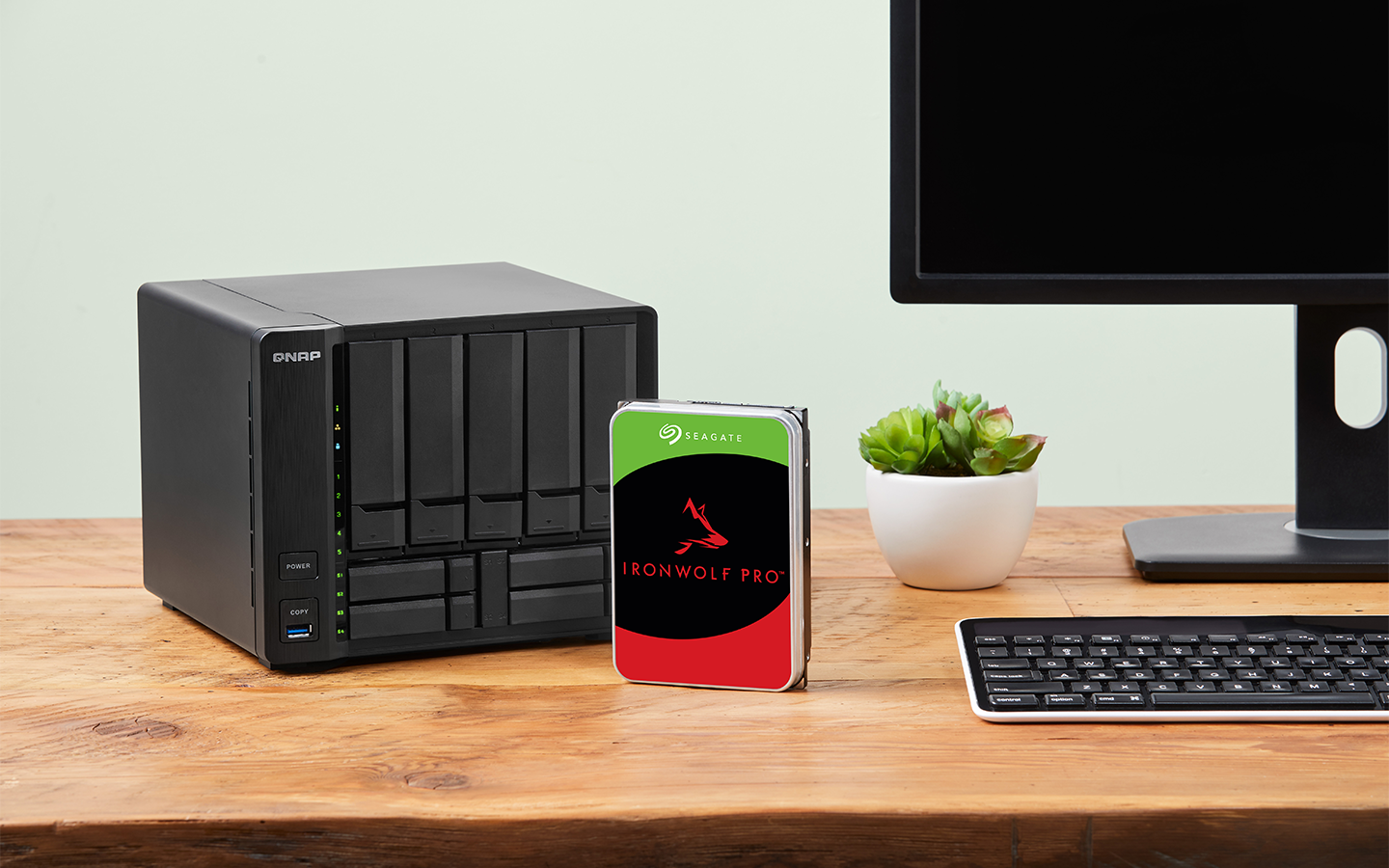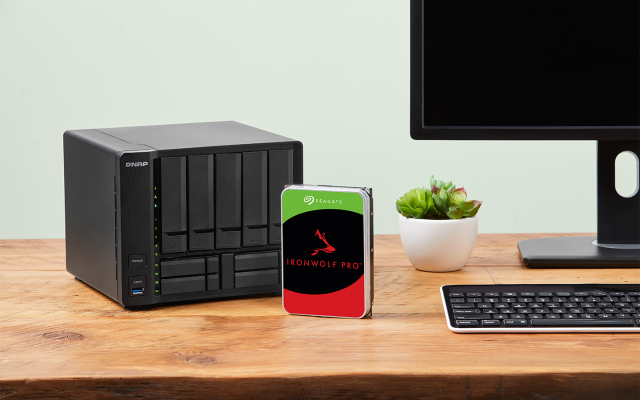As businesses of all sizes face increasing data storage needs, network-attached storage (NAS) has become a popular option for upgrading storage infrastructure while maintaining simplicity, efficiency, and affordability for the organization.
NAS systems allow multiple users and devices to access data stored in centralized hard drives. However, optimized NAS systems require specialized NAS hard drives designed to provide the best performance and user experience possible.
Learn about the best NAS hard drives for your NAS system. This article will explain the differences between regular hard drives and NAS hard drives, and provide a list of considerations when choosing a NAS hard drive.
What Is a NAS Hard Drive?
NAS hard drives are specialized storage drives made specifically for NAS systems. Unlike regular hard drives (HDDs), NAS drives are optimized for continuous operation, handling multiple read/write requests simultaneously. They excel in RAID configurations, offering enhanced reliability and performance. Seagate IronWolf® NAS drives, for example, undergo rigorous testing and firmware optimization for NAS environments. While regular hard drives are versatile, NAS drives are tailored for sustained uptime and data integrity, making them ideal for network storage solutions.
What Makes a NAS Hard Drive Different from a Regular Hard Drive?
Using standard hard drives for NAS systems might seem like a cost-saving measure, but it disregards crucial disparities essential for sustained NAS performance.
NAS hard drives are different than standard hard drives in that they are meticulously crafted for continuous operation, setting them apart from their traditional counterparts. This distinction is pivotal as NAS drives are designed to withstand the rigors of 24×7 operation, necessitating durability and enduring performance. NAS drives boast a significantly high mean time between failures (MTBF) metric, reflecting their robust construction and reliability in long-term usage scenarios.
One of the primary differentiators lies in the internal design of NAS drives. They are equipped with reinforced components tailored for NAS environments, such as strengthened guardrails for temperature control and advanced vibration mitigation mechanisms. These enhancements help NAS drives effectively manage the demands of constant access and data transfer, minimizing the risk of performance degradation or premature failure.
Moreover, some NAS hard drives feature optimized spindle speeds, deliberately tuned to strike a balance between performance and longevity. While this may result in slightly lower read/write speeds compared to conventional hard drives, the trade-off is mitigated vibrations and extended lifespan, making NAS drives ideal for environments where reliability takes precedence over sheer speed.
In addition to their robust hardware, NAS drives often come equipped with an array of features specifically designed to enhance their compatibility and performance in NAS configurations.
For example, Seagate IronWolf Pro hard drives include built-in vibration sensors that detect and counteract environmental vibrations, proactive health monitoring systems that provide real-time status updates, and firmware optimizations tailored to maximize performance in RAID arrays.
Furthermore, manufacturers of NAS drives typically offer additional support services and warranties, recognizing the critical role these drives play in data storage infrastructures. These services may encompass data recovery assistance, extended warranties, and dedicated technical support, providing added assurance to businesses relying on NAS solutions for their storage needs.
For example, Seagate IronWolf Pro NAS hard drives come with an included three-year data recovery service plus a five-year limited warranty, offering more protection and recovery services than other hard drives.
So, while using regular hard drives for NAS applications may seem sensible on the surface, the specialized design and features of NAS hard drives make them indispensable for the long-term reliability, performance, and data integrity of NAS systems.
What Are NAS Drives Used For?
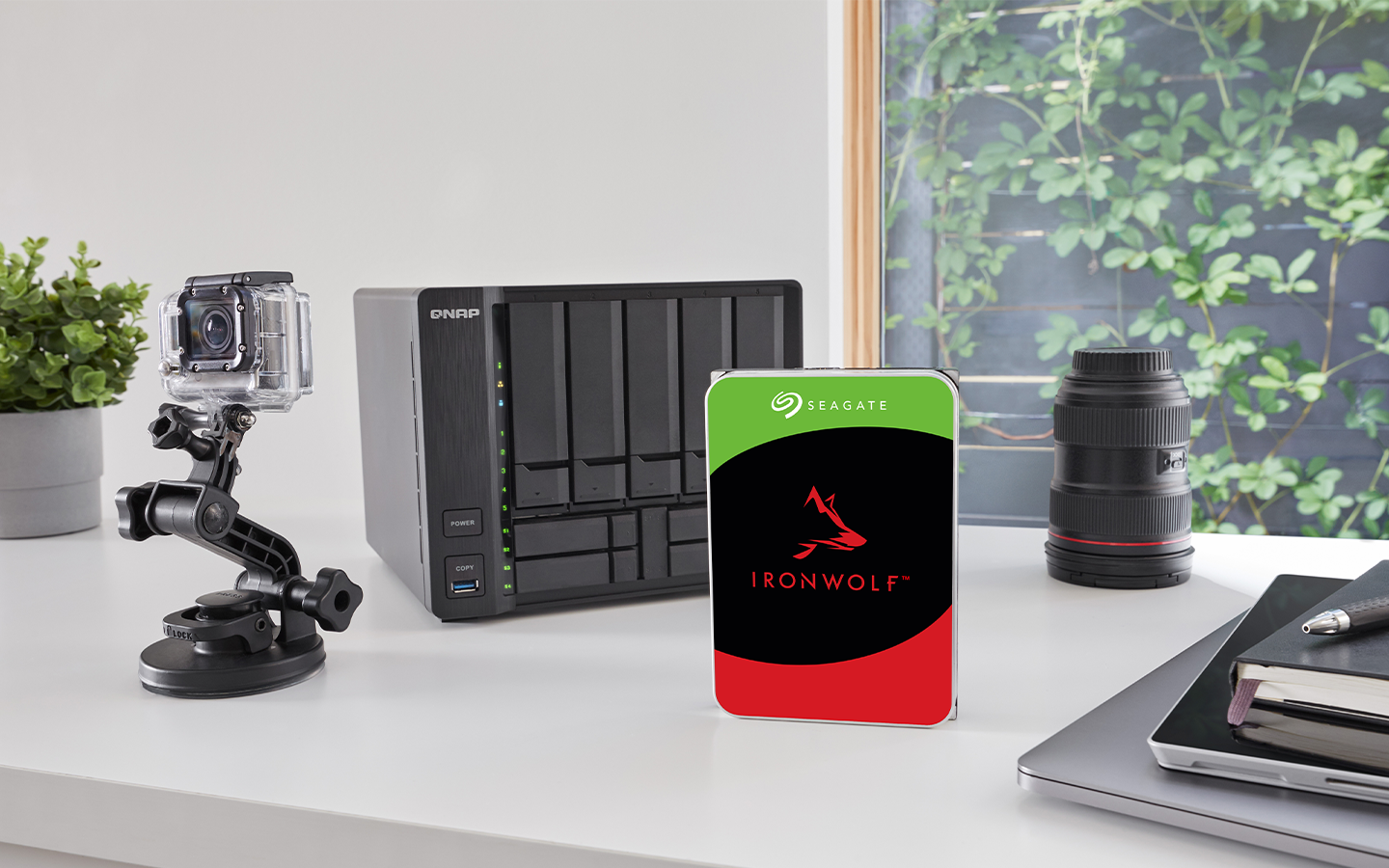
Seagate IronWolf NAS Hard Drives
Many businesses are generating large amounts of data and are likely maintaining large libraries of media and other assets, which requires them to increase available storage space. Some businesses may also face regulatory requirements to store certain types of data for a specific period, further extending their storage needs.
NAS drives are typically implemented to accommodate those growing requirements while prioritizing affordability and ease of use. While NAS systems have historically been more commonplace among enterprise organizations, medium and even small businesses are starting to upgrade their storage with NAS drives to support their day-to-day operations.
What to Consider When Choosing a NAS Hard Drive
Given the unique requirements for NAS drives, buyers should be mindful of different technical specs and other considerations when evaluating their hard drive options.
Here are some important criteria to keep in mind as you search for the best drives for NAS systems.
Drive Compatibility
Compatibility with various NAS providers is a crucial aspect to consider when selecting the best NAS hard drive. Fortunately, Seagate drives stand out for their extensive compatibility testing and support across multiple leading NAS brands.
Seagate NAS drives undergo rigorous testing and validation processes to ensure seamless integration with a wide range of NAS systems, including those from prominent providers like Asustor, QNAP, and Synology. Users can feel confident knowing Seagate drives have been specially tuned to perform seamlessly inside NAS solutions as a result of comprehensive compatibility testing.
The advantage of this broad compatibility becomes especially apparent in scenarios where users may need to switch or upgrade their NAS provider in the future. Since Seagate NAS drives are validated across multiple platforms, users have the flexibility to transition between different NAS systems without concerns about drive compatibility or performance issues. This versatility simplifies the migration process and future-proofs the investment in Seagate NAS drives, allowing users to adapt to evolving storage needs or preferences without the hassle of replacing their entire storage infrastructure.
Plus, Seagate’s commitment to compatibility extends beyond hardware integration. We often collaborate closely with NAS manufacturers to develop firmware optimizations and compatibility updates tailored to specific NAS platforms. Through this collaborative approach, Seagate NAS drives deliver optimal performance, reliability, and feature support across diverse NAS environments, regardless of the chosen provider.
In essence, the broad compatibility of Seagate NAS drives underscores their versatility and reliability, offering peace of mind and flexibility for users who navigate the dynamic landscape of NAS storage solutions. Whether deploying a new NAS system or transitioning between providers, Seagate’s compatibility assurance means a seamless experience and maximum interoperability for users seeking a dependable storage solution for their NAS environment.
Reliability and Durability
When searching for the best NAS hard drive, you should consider the drive’s MTBF rating, limited warranty, and annual workload rating because these will indicate the reliability and longevity of the NAS drive. Higher MTBF ratings, as measured in hours, will reflect a longer expected lifespan for the device. The higher your annual workload rating, the more day-to-day activity you can reliably support through that drive.
For example, Seagate IronWolf Pro boasts class-leading durability in the form of an up to 550TB/year workload rating, 2.5 million hours MTBF, and five-year limited warranty for unparalleled total cost of ownership (TCO).
Performance
Performance is also a critical factor to consider when searching for the best NAS hard drives. It’s vital to balance read/write speeds with vibration management. Some NAS drives minimize vibrations with lower spindle speeds. While this enhances drive lifespan, it may impact read/write speeds, a crucial trade-off to consider.
Seagate IronWolf Pro drives, for instance, strike a balance between performance and vibration control. They feature AgileArray™ technology, which optimizes drive performance, reliability and power management. IronWolf Pro drives are engineered to deliver consistent, high-speed performance suitable for demanding NAS applications, such as multi-user environments, creative workflows, and small to medium-sized businesses.
Furthermore, IronWolf Pro drives are equipped with rotational vibration (RV) sensors, which mitigate the impact of vibrations in multi-drive NAS systems. These sensors detect and counteract vibrations, promoting smooth operation and sustained performance—even in high-density storage configurations.
When comparing the performance of NAS hard drives, it’s important to consider raw read/write speeds along with factors like spindle speed, caching mechanisms, and optimization features. Seagate IronWolf Pro series exemplifies a balance between performance and reliability, offering robust performance alongside advanced features tailored for NAS environments.
Power Consumption and Heat Generation
Power consumption and heat generation are pivotal considerations when selecting the best NAS hard drives, especially for systems intended for continuous operation.
NAS drives are engineered with efficiency in mind, aiming to strike a balance between performance and power consumption. Lower power consumption not only reduces operating costs but also contributes to environmental sustainability by minimizing energy usage and heat output.
Efficient power management is particularly crucial for NAS environments where multiple drives may be running simultaneously. By minimizing power draw during idle periods or low-demand operations, NAS drives help optimize energy usage without compromising performance or reliability.
Additionally, effective temperature control is essential to ensure the longevity and stability of NAS systems. Excessive heat can degrade drive performance and reliability over time, potentially leading to premature drive failure and data loss. Therefore, NAS drives are equipped with features such as advanced firmware algorithms and temperature sensors to monitor and regulate internal temperatures, which help prevent overheating and ensure optimal operating conditions.
Some NAS hard drives—like those from the Seagate IronWolf series—incorporate innovative technologies to enhance power efficiency and mitigate heat generation. For example, IronWolf drives have AgileArray technology, which optimizes drive performance, and minimizes power consumption and heat emission through intelligent power management.
By prioritizing power efficiency and heat management, NAS hard drives contribute to the overall reliability and sustainability of NAS systems. Whether deployed in small home offices or large-scale enterprise environments, efficient power consumption and effective temperature control are essential for maximizing the performance, longevity, and cost-effectiveness of NAS storage solutions.
Budget
The cost of NAS hard drives can vary widely depending on their storage capacity and other built-in features. If you’re working with a fixed budget, plan out your hard drive investments to make sure the total cost will fit your limitations.
Compatibility with NAS Enclosures and Systems
While NAS drives and enclosures from different manufacturers can often be combined, drives must be compatible with that system. The only way to guarantee this is by referencing the list of compatible devices maintained by each NAS enclosure. Always reference this information before purchasing a NAS hard drive.
Manufacturer Support
Ongoing support will help you maximize the longevity and value of your NAS hard drive. Seagate NAS drives, for example, offer three- and five-year limited warranties along with rescue data recovery support for the device.
Products like our IronWolf hard drives also come with built-in health management and monitoring firmware to maximize your long-term support and device maintenance.
Best Hard Drives for NAS
Want to upgrade your storage environment with the best drives for NAS systems? Here are three solutions to consider:
Seagate IronWolf Pro NAS Hard Drives
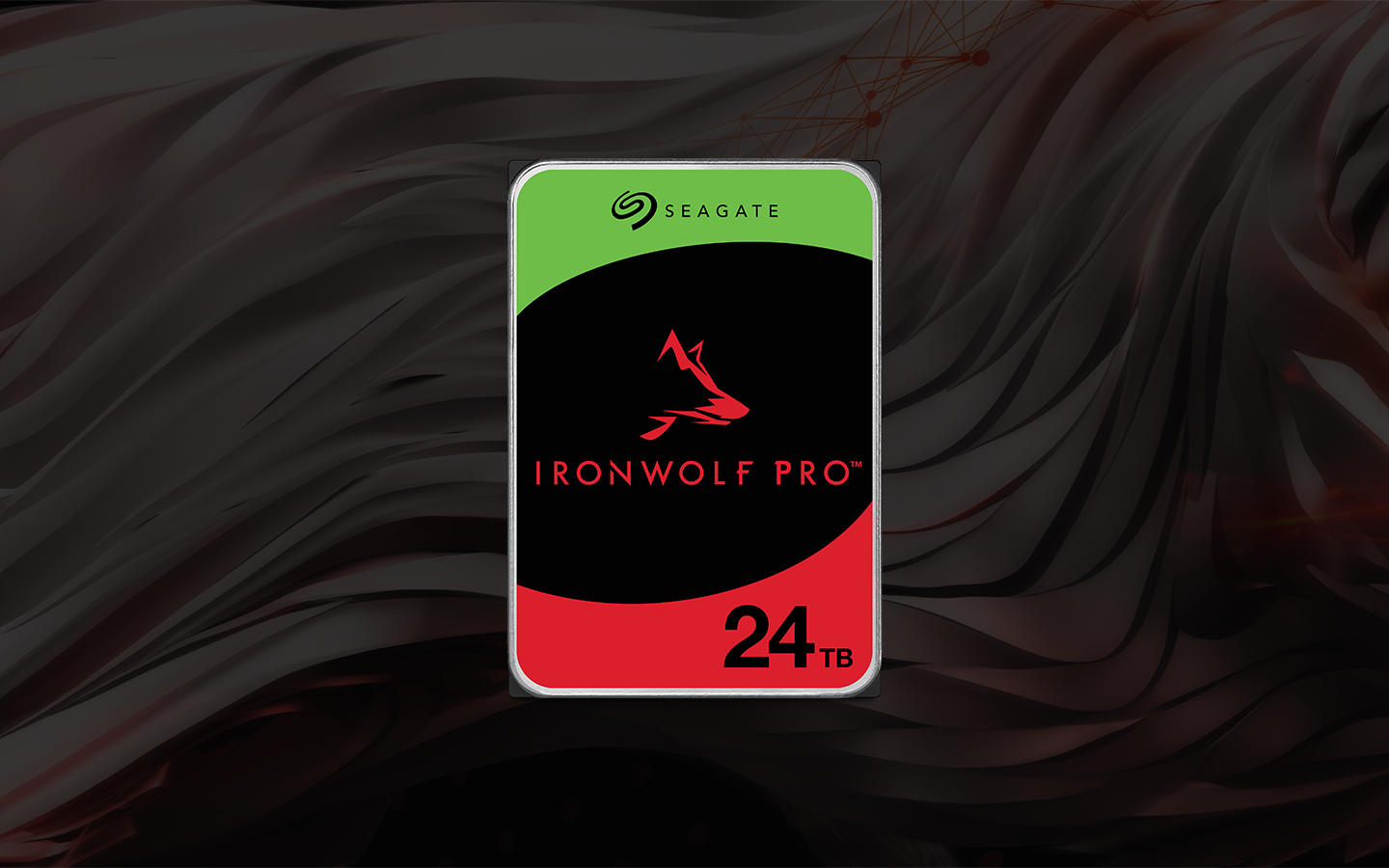
IronWolf Pro NAS Hard Drive
Equip your NAS systems with NAS drives specifically designed for enterprise-grade workloads. Seagate IronWolf Pro offers high performance and a durable design suited for use in multi-bay, multi-user environments.
Specs
- Up to 24TB storage
- Annual workload rating of 550TB/year
- 2.5 million hours MTBF
- Equipped with AgileArray firmware for RAID optimization and 24/7 use
- Built-in RV sensors to mitigate vibration in multi-bay NAS environments
- IronWolf Health Management firmware
- Five-year limited warranty
- Three-year Rescue Data Recovery services
Best Fit For
Commercial and enterprise NAS enclosures, as well as video production RAID environments.
Where to Buy
Purchase Seagate IronWolf Pro HDD here
Seagate IronWolf NAS Hard Drives
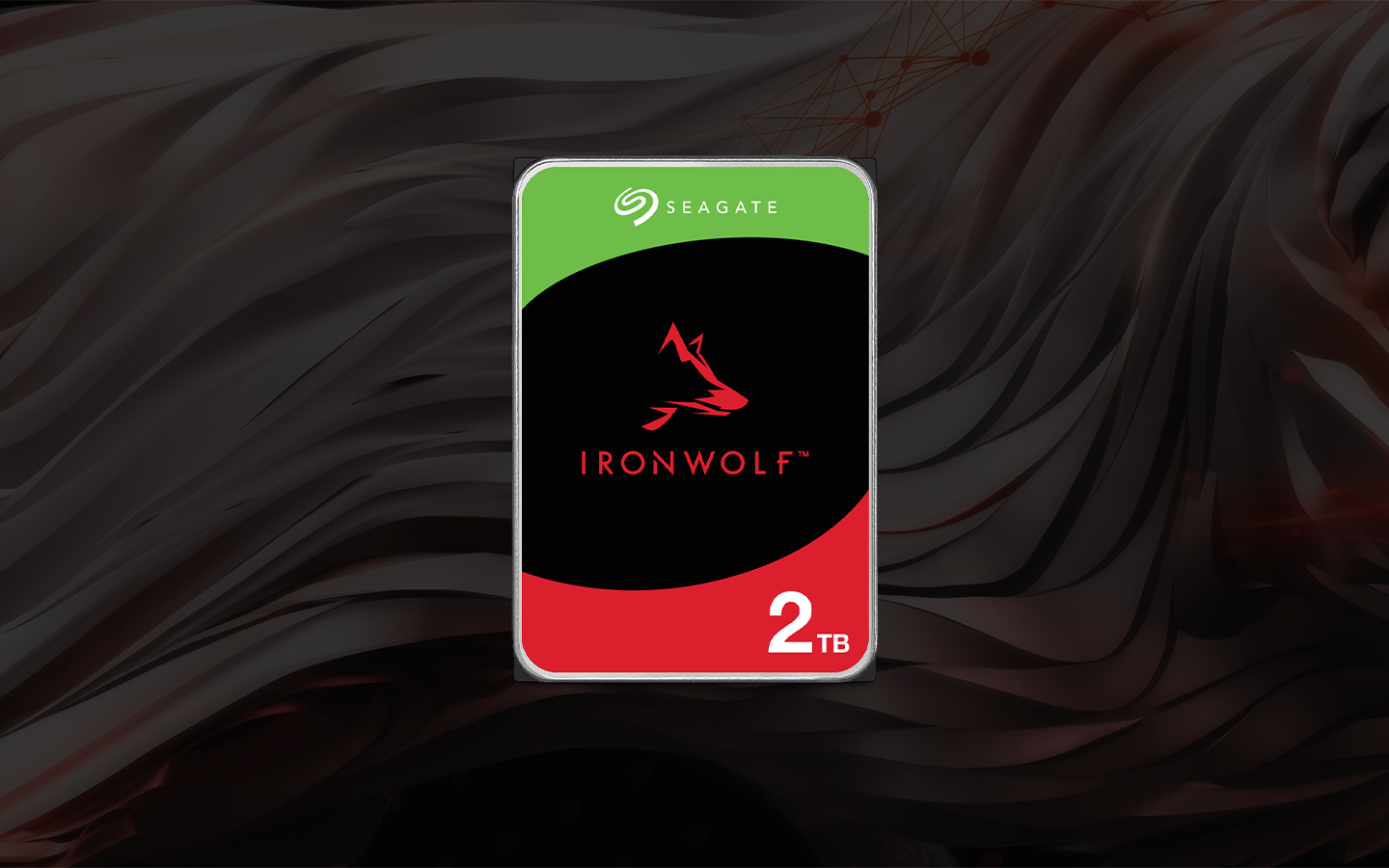
IronWolf NAS Hard Drive
Outfit your NAS system with hard drives that offer broad compatibility, versatile storage capacities, and industry-leading support. Seagate IronWolf hard drives feature enterprise-grade performance and updated firmware for optimized RAID performance.
Specs
- Up to 24TB storage capacity
- Max spindle speed of 7200 RPM
- 2.5 million hours MTBF
- Access to IronWolf Health Management
- Five-year limited warranty
- Three-year Rescue Data Recovery services
Best Fit For
Consumer and commercial NAS systems, as well as multimedia servers.
Where to Buy
Purchase Seagate IronWolf HDD here
Exos X20 20TB Enterprise Drives
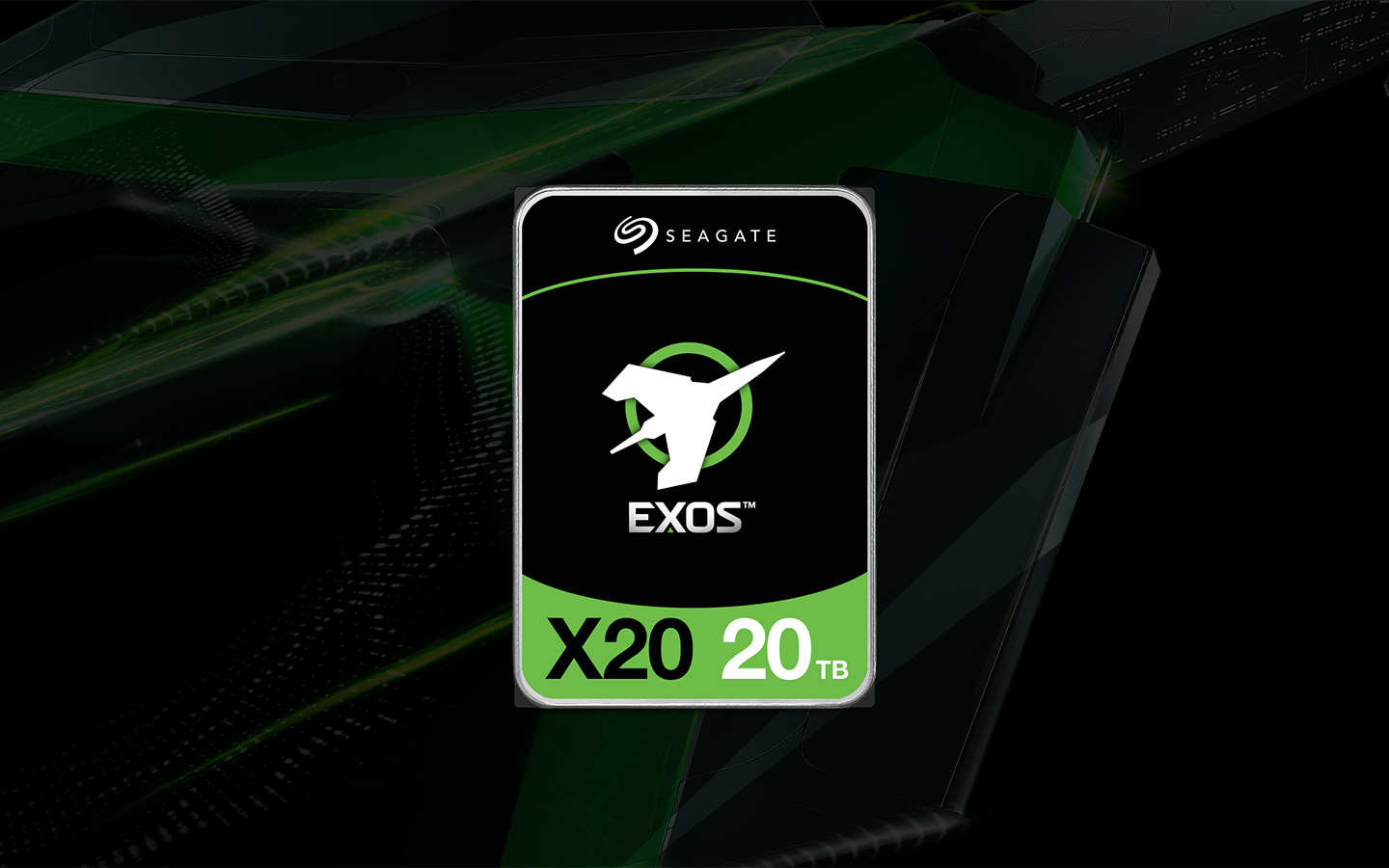
Enterprise Exos X Hard Drive
Maximize both your storage capacity and your rack space efficiency. Seagate Exos® X20 20TB can help you build a rack capable of supporting any enterprise workload.
Specs
- 20TB storage capacity
- Max spindle speed of 7200 RPM
- 2.5 million hours MTBF
- Hyperscale SATA model tuned for large data transfers and low latency
- Five-year limited warranty
Best Fit For
Scalable data centers, enterprise storage arrays, and big data applications.
Where to Buy
Purchase Seagate Exos X20 20TB here
Upgrade Your NAS System Today
By investing in new, state-of-the-art NAS drives, your business can build a network-attached storage solution that offers the capacity, performance, durability, and ongoing support you need to realize the full potential of NAS storage—all at a cost your organization can afford.






